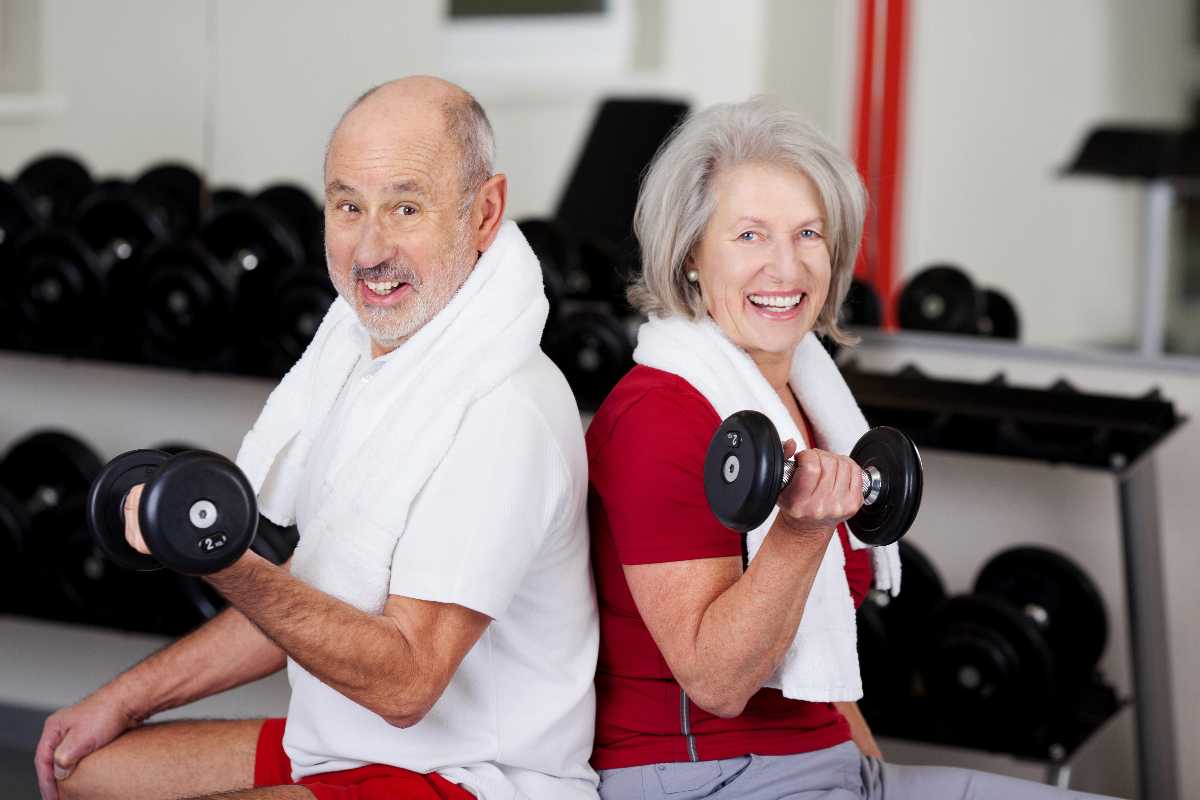According to a research, muscle growth in elderly people changes considerably, becoming smaller and, above all, slower than in younger subjects. Let’s find out how and why this change occurs.
A team of scientists investigated how the older people respond to exercise. The target? Understand the underlying biological mechanisms that cause muscle size and strength to increase after resistance training.
Old and young build muscle alike. But as we age, many of the biological processes that turn exercise into muscle become less effective. This makes it harder for older people to build strength, but it also makes it much more important for everyone to continue playing sports even in old age. (Read also: Are you over 40? 10 minutes of physical activity a day would be enough to extend your life)
How the body builds muscles
Strength training includes exercises such as push-ups and sit-ups, as well as weight lifting and resistance training using specific bands or machines. When you train this way, over time, exercises that seemed difficult at first become easier as your muscles increase in strength and size, for the process called hypertrophy.
But what is really happening to the cells when muscles increase in strength and size in response to resistance training? Whenever you move your body, you do it by shortening and pulling the muscles, a process called contraction. This is how muscles spend energy to generate force and produce movement. Every time you contract a muscle, the action provokes changes in the levels of various chemicals in the muscles. In addition to chemical changes, there are also specialized receptors on the surface of muscle cells that detect movement; in this way you generate strength or yes it otherwise alters the biochemical mechanism within a muscle.
In a healthy young person, when these chemical and mechanical sensory systems detect muscle movement, they activate a series of chemical pathways. These pathways trigger the production of more proteins, which are incorporated into the muscle fibers and increase the size of the muscle itself. These cellular pathways also activate genes that code for specific proteins. This activation of gene expression is a long-term process, with genes turned on or off for several hours after a single resistance exercise session. The overall effect of these numerous exercise-induced changes is to make your muscles bigger.
How older muscles change
The basic biology of all people, young or old, is more or less the same, but what changes in a person’s muscles as they get older? What the Research he found is that in young muscles, a little exercise produces a strong signal for the many processes that trigger muscle growth. In the muscles of older people, however, the signal that says ai muscles to grow is much weaker. These changes begin to occur around age 50, and become more pronounced over time.
The study aimed to understand if there were also changes in the genes. Then, using a technique that made it possible to measure changes in thousands of genes in response to endurance exercise, it was found that when younger men exercised, there were changes in the expression of more than 150 genes. When they looked at older people, they found it changes in the expression of only 42 genes. This difference in gene expression seems to explain, at least in part, the most visible variation between how young and old respond to strength training.
Staying fit with age
When you put together all the various molecular differences in how older adults respond to strength training, the result is that older people don’t gain muscle mass like younger people.
But that shouldn’t discourage them from exercising. If anything, it should encourage you to play more sports even at an older age. The reason? L’exercise still remains one of the most important activities that the elderly can perform for their own health. Indeed, seniors with mobility problems who participated in a regular program of aerobic and resistance exercise have been shown to reduce the risk of becoming disabled by about 20%. In addition, one was also found a similar 20% reduction in the risk of becoming disabled among people already physically fragile, who have done the same training program.
While younger people can get stronger and build larger muscles much faster than their older counterparts, the latter still get incredibly valuable health benefits from exercise, including increased strength, improved mobility and reduced disability. .
Follow us on Telegram | Instagram | Facebook | TikTok | Youtube
Could it be interesting for you:
